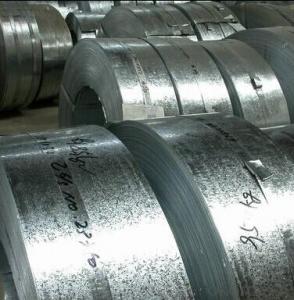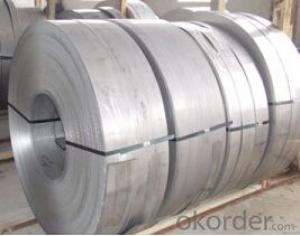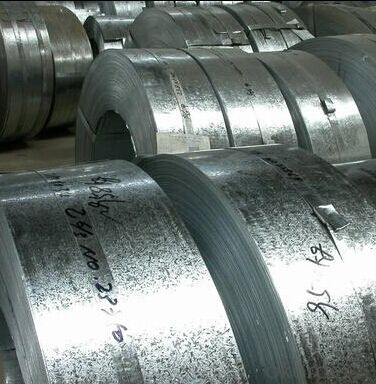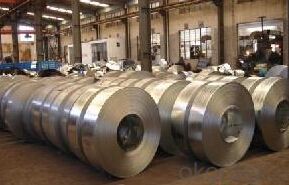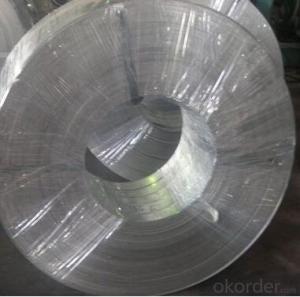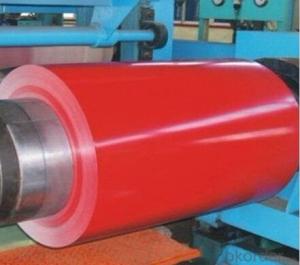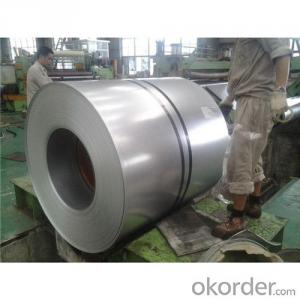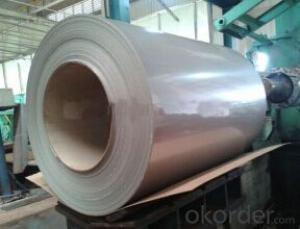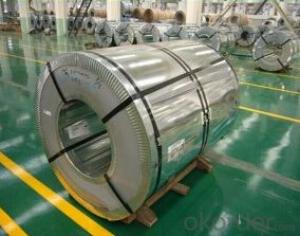Galvanized Steel Coils/ Strips for Building
- Loading Port:
- Shanghai
- Payment Terms:
- TT OR LC
- Min Order Qty:
- 30 m.t.
- Supply Capability:
- 10000 m.t./month
OKorder Service Pledge
OKorder Financial Service
You Might Also Like
Basic Info.
Model NO.:SGCC, DX51D
Surface Treatment:Galvanized
Certification:SGS
Technique:Cold Rolled
Standard:ASTM, JIS, GB, DIN
Application:Container Plate
Edge:Slit edge
Steel Grade:Q195
Width:10-1250mm
Coil Weight:3-5tons
Thickness:0.18-2.0mm
Export Markets:Global
Additional Info.
Packing:Stanadrd Sea Worth
Standard:SGS
Origin:China
HS Code:72104900
Production Capacity:4000 Tons/Month
Product Description
Cold rolled steel coil/ band / strip / strap/ tape
Standard GB ASTM BS JIS DIN
Material Q195 Q235 Q345 SS400 ST 37 SAE1008 A36
Size: 0.11mm - 3.0mm
Width as your requirement from 10mm-1500mm
Package: Stanadrd sea worth or as your requirement
Coil weight: As your requirement from 50-7000kg
Quality warranty: Any third party inspection is accepted.
Quality Certificate: MTC Mill orioginal and others as your requirement.
Commodity | Galvanized Steel Coils |
Thickness | 0.12mm-5mm |
Width | 600-1500mm |
Zinc mass | 40-275 gsm |
Coil Weight | 3-8 tons |
Standard | ASTM, AISI, GB, JIS, DIN |
Grade | Q195-Q345, SGCC, SPCC, SPHC, DC51D, DX51D, DX52D, SS grade 33-80, DX 54D |
Spangle | Big Spangle, Small Spangle, Regular Spangle, Zero Spangle |
Payment | T/T, L/C |
MOQ | 30 tons |
Packaging | Seaworthy standard packaging or as customed |
Delivery | 10-20 days after receiving the prepayment |
- Q: How are steel coils used in the manufacturing of shock absorbers?
- Steel coils are used in the manufacturing of shock absorbers primarily as a spring component. These coils provide the required strength and flexibility to absorb and dampen the impact and vibrations experienced by the vehicle. When compressed or expanded, the steel coils store and release energy, ensuring a smoother and more controlled ride for the driver and passengers.
- Q: What are the main factors that affect the price of steel coils?
- The main factors that affect the price of steel coils include the cost of raw materials, such as iron ore and scrap metal, as well as the demand and supply dynamics in the market. Other influential factors include energy costs, transportation expenses, production capacity, and geopolitical factors that can impact global trade. Additionally, fluctuations in currency exchange rates and government regulations on trade and tariffs can also influence the price of steel coils.
- Q: What are the dimensions of a steel coil?
- The dimensions of a steel coil can vary depending on its intended purpose and specifications. However, typical dimensions can range from 0.15mm to 10mm in thickness, and from 600mm to 2,000mm in width. The length of a steel coil can vary as well, typically ranging from 1,500mm to 6,000mm.
- Q: I have a set of Stainless steel pots and pans. Everything is sticks to them. What must I do so things don't stick?
- Stainless is great for many things but not so great for some others. Where you want sticking is when you saute meat. You want those crusty brown bits that when the pan is deglazed are the makings of a great sauce. Get yourself one or two non stick pans (preferably with a metal handle so it can go from stove top to oven). Use those where you wish to avoid sticking (like eggs / omelets, french toast or pancakes. Keep in mind that no one pan type is universally good for all types of cooking. My kitchen is mostly stocked with layered stainless steel. I have a few non-stick skillets, a carbon steel wok, a few cast iron skillets, an enameled cast iron dutch oven (le creuset), and a copper sauce pan. Each has its own use.
- Q: which is the most tough and durable steel type ??
- Speaking of Building Construction, we use grade 450 and 450B not because of toughness, its because it best serves its purpose, reinforcing concrete structure should provide the enough ductility of structure to resist flexure/bending when loads are imposed on it.
- Q: Can steel coils be coated with heat-resistant materials?
- Yes, steel coils can be coated with heat-resistant materials.
- Q: How do steel coils contribute to the manufacturing of oil and gas equipment?
- Steel coils play a vital role in the production of oil and gas equipment, as they are an essential component. Typically, these coils are made from high-quality steel that is durable, strong, and resistant to corrosion. This makes them ideal for enduring the harsh environments and conditions encountered in the oil and gas industry. One of the primary uses of steel coils in oil and gas equipment manufacturing is in the creation of pressure vessels. These vessels are crucial for storing and transporting fluids and gases under high pressure. Steel coils are used to form the cylindrical shells of these vessels, providing the necessary strength and structural integrity to withstand the internal pressure. Steel coils are also utilized in the construction of oil and gas pipelines. These pipelines are responsible for transporting large quantities of oil and gas over long distances. Steel coils are used to manufacture the pipes that compose these pipelines, ensuring they have the necessary strength, durability, and resistance to corrosion. The coils are rolled and welded to create seamless or welded pipes, which are then coated or lined to prevent corrosion and increase their lifespan. Additionally, steel coils are instrumental in the production of drilling equipment used for extracting oil and gas. This equipment includes drill bits, casings, and wellheads, which are essential for drilling and completing wells. The coils are used to fabricate these components, ensuring they can withstand the demanding conditions encountered during drilling operations. Aside from their structural applications, steel coils are also used in the manufacturing of ancillary equipment like tanks, storage containers, and heat exchangers. These components play a crucial role in the processing, storage, and distribution of oil and gas. Steel coils provide the necessary strength and durability to handle the harsh conditions and corrosive substances encountered in these processes. In conclusion, steel coils are indispensable in the manufacturing of oil and gas equipment. Their strength, durability, and resistance to corrosion make them a preferred choice in the industry. By contributing to the fabrication of pressure vessels, pipelines, drilling equipment, and ancillary components, steel coils ensure the safe and efficient extraction, processing, and transportation of oil and gas.
- Q: How are steel coils used in the production of metal roofing panels?
- The production of metal roofing panels relies heavily on steel coils, which are rolled sheets of steel. These coils play a crucial role in shaping and forming the panels. To begin, a machine called a roll former is used to unwind and feed the steel coils. This machine gradually shapes and bends the steel into the desired profile of the metal roofing panel using a series of rollers and dies. The coils pass through these rollers, which apply pressure and force to mold the steel into the required shape and size. After the metal has been formed into panels, it may undergo additional processes to enhance its durability and appearance. These processes can include galvanizing or coating the panels with protective layers to prevent corrosion and improve weather resistance. These additional steps ensure that the metal roofing panels can withstand harsh environmental conditions and provide long-lasting performance. Steel coils are chosen over other materials for the production of metal roofing panels because of their strength and durability. Steel has an exceptional strength-to-weight ratio, making it a suitable material for roofing applications. Additionally, steel is highly resistant to various weather conditions such as high winds, heavy rains, and extreme temperatures. This makes it an ideal choice for roofing panels that need to withstand the elements and provide reliable protection for buildings. In conclusion, steel coils are an essential component in the manufacturing process of metal roofing panels. They are used to shape and form the panels, which then undergo further processing to enhance their durability. The use of steel in these panels ensures that they can withstand harsh weather conditions and provide long-lasting performance for residential, commercial, and industrial buildings.
- Q: What are the different methods of coil flattening for steel coils?
- Coil flattening for steel coils can be achieved through various methods, each having its own advantages and limitations. Some commonly employed techniques are as follows: 1. Roller leveling: By passing the steel coil through a series of rollers that exert pressure, this method flattens the coil. The rollers can be adjusted to achieve the desired level of flatness. Roller leveling is a versatile approach capable of handling a wide range of coil sizes and thicknesses. 2. Precision leveling: This method employs a more advanced leveling machine that applies pressure to specific areas of the coil to eliminate any waviness or defects. Precision leveling is commonly used for high-quality steel coils that require exceptionally flat surfaces. 3. Stretch leveling: Also known as tension leveling, this technique involves stretching the steel coil beyond its yield point, causing permanent deformation and flattening. Stretch leveling is frequently used for thinner gauge coils and effectively eliminates coil set and crossbow defects. 4. Temper rolling: This method subjects the steel coil to a controlled low-temperature heat treatment followed by cold rolling. The combination of heat and cold rolling helps relieve internal stresses and improve flatness. Temper rolling is particularly suitable for coils that require enhanced surface quality. 5. Laser flattening: This advanced method utilizes laser technology to selectively heat and flatten specific areas of the coil. Laser flattening is highly precise and capable of correcting localized defects or unevenness. However, due to its higher cost, it is typically used for smaller coils. It is essential to consider various factors, such as desired flatness requirements, coil dimensions, material properties, and production budget, when selecting the most appropriate coil flattening method.
- Q: What are the weight ranges of steel coils?
- The weight of steel coils can differ based on their dimensions and intended purpose. In general, steel coils can weigh anywhere from a few hundred pounds to several tons. For instance, hot-rolled steel coils generally fall between 10 and 25 tons, while cold-rolled steel coils can range from a few hundred pounds to 20 tons. The weight of steel coils is also influenced by factors like coil thickness, width, grade, and steel type. Ultimately, the weight range of steel coils is determined by the industry and application requirements.
Send your message to us
Galvanized Steel Coils/ Strips for Building
- Loading Port:
- Shanghai
- Payment Terms:
- TT OR LC
- Min Order Qty:
- 30 m.t.
- Supply Capability:
- 10000 m.t./month
OKorder Service Pledge
OKorder Financial Service
Similar products
Hot products
Hot Searches
Related keywords
